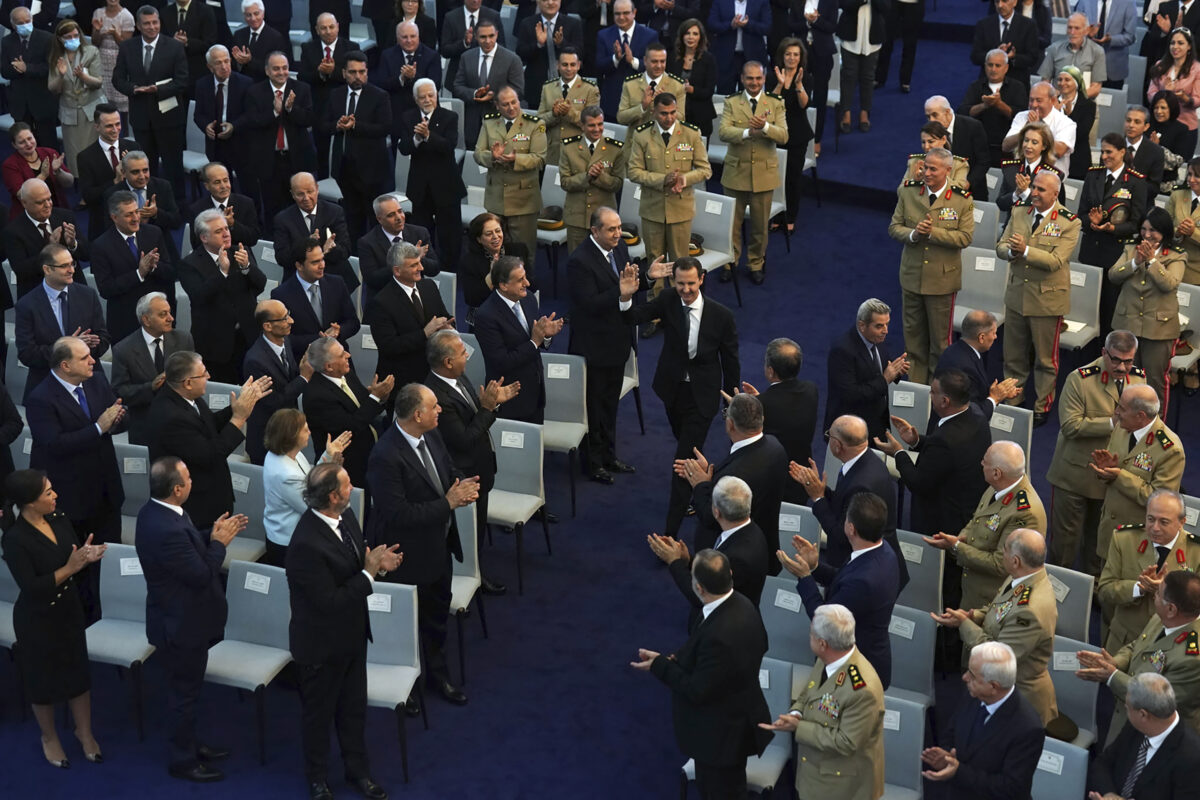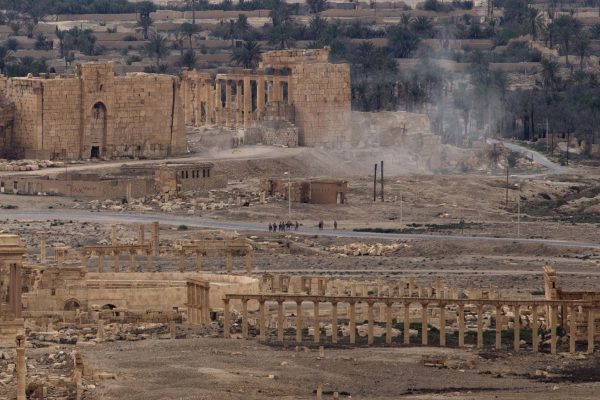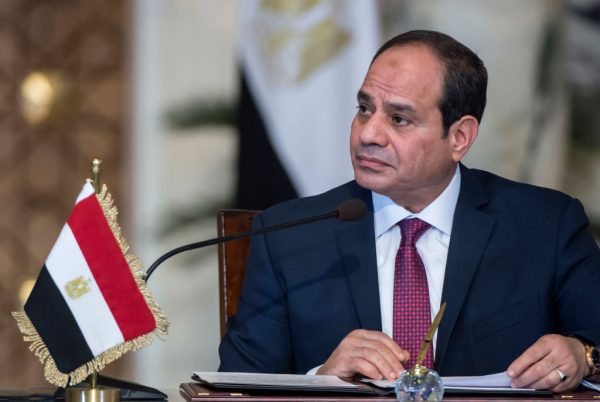


After being largely shunned in the region for the past 12 years, Syria appears set to return to the fold after two devastating earthquakes left thousands dead in the country’s northwest early this month.
On Feb. 27, Egyptian Foreign Minister Sameh Shoukry visited Damascus, where he held talks with Syrian President Bashar al-Assad.
It was the first such visit by a top Egyptian official since conflict erupted in Syria amid the “Arab Spring” uprisings of 2011.
“I am happy to visit Syria and had the honor to meet President Bashar al-Assad,” Shoukry said at a joint press conference with his Syrian counterpart, Faisal Mekdad.
“I conveyed to him [Assad] a message from [Egyptian] President Abdel Fattah al-Sisi to affirm solidarity with Syria and readiness to continue providing whatever support we can to address the effects of the earthquake,” he added, according to Syria’s SANA news agency.
Mekdad, for his part, said Shoukry’s meeting with al-Assad had focused on “the effects of the earthquake, in addition to the historical relations binding the two brotherly countries.”
On Feb. 6, southern Turkey and northern Syria were rocked by back-to-back earthquakes measuring 7.7 and 7.6 on the Richter scale.
Along with causing widespread destruction, the twin quakes left more than 44,000 people dead in Turkey and almost 6,000 dead in Syria, according to official death tolls.
A day after the earthquakes, al-Sisi spoke with Assad–by phone–for the first time since assuming Egypt’s presidency in 2013.
After the Syrian conflict erupted in 2011, most Arab states threw their support behind rebel groups seeking to overthrow Assad and his government. Syria was also expelled at the time from the 22-member Arab League.
Cairo severed ties with Damascus under a Muslim Brotherhood-led government headed by Mohamed Morsi, Egypt’s first-ever democratically elected president.
But after Morsi’s ouster in a bloody 2013 military coup, Egypt reopened its embassy in Damascus. It kept Assad at arm’s length, however, so as not to alienate the United States, its longtime ally.
Yet despite the foreign-backed rebel groups arrayed against it, Assad and his government held onto power due largely to the backing of Russia and Iran.
Since 2015, both countries have maintained a significant military presence in Syria.
Shoukry’s visit to Damascus is yet another sign of Syria’s diplomatic reintegration into the region after years of isolation.
One day earlier, parliamentary leaders from Egypt, Iraq, Jordan, Palestine, Libya, and the United Arab Emirates (UAE) paid a similar visit to Damascus.
During the one-day visit, the delegation, which also included Lebanese and Omani representatives, met with Assad and Syrian lawmakers.
On Feb. 15, Jordan’s foreign minister also visited Damascus—for the first time—to express solidary with quake-hit Syria. Five days later, Assad himself visited the Gulf sultanate of Oman.
Last year, Assad paid a landmark visit to the UAE. It was the Syrian leader’s first trip to a fellow Arab country since 2011.
In recent months, Turkey, too, which has backed several rebel groups against Assad, has taken steps to restore diplomatic ties with Damascus after more than 12 years of hostility.
Late last year, the Turkish and Syrian defense ministers held talks at a meeting hosted by Moscow. It was the highest-level contact between the two countries in over a decade.
With the aim of fully normalizing ties, Mekdad and Turkish Foreign Minister Mevlut Cavusoglu had been slated to meet this month in the Russian capital.
The meeting was postponed, however, in the wake of this month’s devastating earthquakes.
Meanwhile, the United States, which maintains hundreds of troops in northeastern Syria, remains opposed to the normalization of ties—by anyone—with Damascus.
“We will not normalize, and we do not support other countries normalizing with the [Assad] regime,” a U.S. State Department spokesman told The Epoch Times late last month.
“We have not seen that the regime in Damascus has done anything that would merit normalization or improved relations,” the spokesman added.
The State Department has yet to respond to The Epoch Times’ request for comment on the Egyptian foreign minister’s visit to Damascus.
On the same day he visited Syria, Shoukry also paid a visit to Turkey, signaling a thaw in relations between Cairo and Ankara. Turkey cut ties with Egypt after the 2013 coup—led by al-Sisi—against Morsi.
During his yearlong tenure as Egypt’s president, Morsi had enjoyed the support of Turkey’s ruling Islamist-leaning Justice and Development Party led by President Recep Tayyip Erdogan.
Last November, Erdogan met al-Sisi at the Football World Cup in Doha, where the two longtime antagonists shook hands.
At a joint press conference with Shoukry in Turkey’s southern Adana province on Feb. 27, Cavusoglu hailed what he called “a new chapter” in Turkey-Egypt relations.




